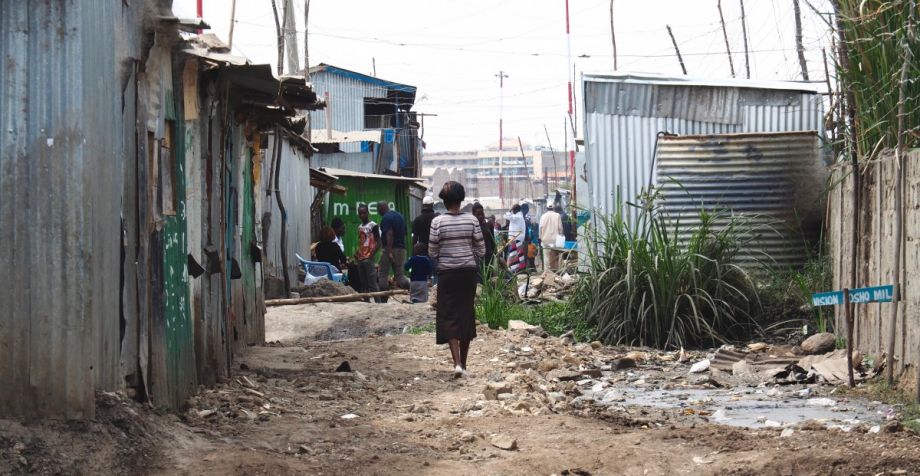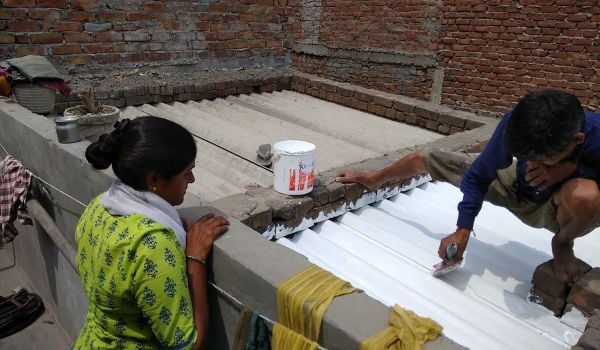This week, planners, policymakers and urban practitioners from across the world are gathering in Kuala Lumpur for World Urban Forum 9. This story is part of Next City’s coverage of the Forum. For more stories, visit our World Urban Forum 9 page here.
Dorice Bosibori can pinpoint the moment she became an activist. In 2012, her neighbors began waking to find eviction notices papered across their doors. Then followed a wave of evictions in Mukuru, the informal settlement where she lives in Kenya’s capital, Nairobi. And, soon, her own home was at risk too. “When you get an eviction notice, people panic,” she says.
Bosibori joined with other community members—none of whom had land tenure—to fight the government’s plans to auction off the land from under them. After a lengthy and complicated legal process, they won the battle to stay in their homes. Since then, the 37-year-old has been closely involved with Slum Dwellers International (SDI), a network of community-based organizations across three continents, as part of her community’s efforts to advocate for their rights on a local, national and international level.
More than half of Nairobi lives in informal settlements like Mukuru, where families occupy small tin shacks that are tightly packed in alongside local businesses. Meanwhile, Nairobi’s population has more than doubled in the past decade to 3.5 million and is projected to exceed 14 million by 2050 (PDF).
For Bosibori, who spoke on Next City’s World Stage on Monday, one of the best way to push her community’s agenda with policymakers has been to take matters that were once the preserve of academics—specifically the collection of data on the demographics and population of Mukuru—into her own hands. “It took us to collect the data to inform the county government that this is the number of people who are living here, we have these services, we don’t have these services, and these are the services that don’t work,” she said.
Their work has had impact: in August last year, the Nairobi City County Government declared Muruku to be a Special Planning Area and stated that it would begin “a participatory process to develop a physical development plan.” It’s an ambitious undertaking, but for Bosibori and her neighbors, it’s a good start. “We expect now the county government to come and see what we dream Mukuru will look like,” she says.
SDI is promoting this approach across countries, and it has proved effective not only in Kenya but also in Zimbabwe, Uganda, Malawi, Ghana and India. The non-governmental organization launched a publication, “Know Your City: Slum Dwellers Count,” at World Urban Forum 9, to showcase the work people are doing in their own communities—and the results they are achieving. Again and again, women representing informal settlements at the conference in Kuala Lumpur, Malaysia, spoke of their newfound ability to negotiate on behalf of their communities with governments, all thanks to being able to back up their stories with hard data.
“If I am alone, I cannot go to the government. They cannot hear me,” says Joyce Lungu of SDI Zambia. “But when we go together, they can hear us.”
Ariana McPherson, the communications and advocacy officer for SDI, calls it a “pro-poor participatory tool for urban governance… that is transforming cities across Africa and Asia.” But she says that the collection of data is not only about using it to force the hand of governments so that development goals can be met. “Of course, that’s critical, but also through the process of mobilizing the community and doing the data collection, and getting people together, it also has an empowering effect—a unifying effect—that brings the community together to create the kind of change that’s needed.”

Holly Robertson is a freelance journalist based in Cambodia who focuses on human rights, gender and the environment. Her work has been published by The Washington Post, Guardian, BBC, Columbia Journalism Review, VICE and Mashable, among others.









